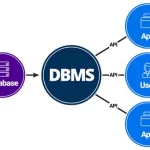
Master Bioinformatics with Free Online Courses: A Step-by-Step Guide
December 27, 2024Bioinformatics is one of the most exciting and rapidly growing fields today, combining biology, computer science, and statistics to unlock the mysteries of life at the molecular level. If you’re eager to dive into the world of bioinformatics but don’t want to break the bank, this step-by-step guide will show you how to master the subject through free online courses from the best universities in the world.
In this blog, we will walk you through a comprehensive curriculum of free resources, courses, and textbooks that will equip you with the knowledge and skills you need to become a proficient bioinformatician. Whether you’re just starting or looking to deepen your expertise, this guide will set you on the right track.
Why Learn Bioinformatics?
Bioinformatics has become an essential part of scientific research, especially in fields like genomics, molecular biology, and personalized medicine. It involves using computational tools and methods to analyze biological data, and it plays a crucial role in advancing our understanding of diseases, genetics, and even drug discovery.
The demand for skilled bioinformaticians is growing, and having a strong foundation in the field can lead to exciting career opportunities in academia, industry, healthcare, and more.
Getting Started: Motivation and Preparation
Before diving into the technical aspects, it’s important to get mentally prepared for the learning journey ahead. Bioinformatics requires a solid understanding of biology, chemistry, mathematics, and computer science. While this may seem overwhelming at first, it’s achievable with the right mindset and resources.
Year 1: Building the Foundation
The first year focuses on laying the groundwork for bioinformatics by building your knowledge in biology, chemistry, mathematics, and programming. These courses will provide you with essential skills that you’ll need for more advanced bioinformatics topics later on.
| Code | Course | Duration | Effort |
|---|---|---|---|
| BIO 1311 | Fundamentals of Biology | 12 weeks | 7-14 Hours/Week |
| CHEM 1311 | Principles of Chemical Science | 15 Weeks | 4-6 Hours/Week |
| Py4E | Python for Everybody | 10 weeks | 10 hours/week |
| 6.00.1x | Introduction to Computer Science and Programming using Python (alt) | 9 weeks | 15 hours/week |
| MATH 1311 | College Algebra and Problem Solving | 4 Weeks | 6 Hours/Week |
| MATH 1312 | Pre-calculus | 4 Weeks | 6 Hours/Week |
| 18.01.1x | Calculus 1A: Differentiation | 13 weeks | 6-10 hours/week |
| 18.01.2x | Calculus 1B: Integration | 13 weeks | 5-10 hours/week |
| MATH 1315 | Introduction to Probability and Data (with R) | 5 Weeks | 6 Hours/Week |
Additional Resources:
- Coursera:
- Bioinformatics Specialization by UC San Diego – Covers bioinformatics fundamentals and application to genomic data analysis.
- Genomic Data Science Specialization by Johns Hopkins University – A great supplement to the genomic data science focus of the curriculum.
- Textbooks:
- Bioinformatics: Sequence and Genome Analysis by David W. Mount – A foundational textbook for bioinformaticians.
- Biostatistics for the Biological and Health Sciences by Marc M. Triola – Excellent for strengthening biostatistics knowledge.
- Codecademy:
- Python for Data Science – An excellent beginner-to-intermediate Python course.
2nd Year
Year 2: Deepening Your Knowledge
In the second year, you’ll begin to explore more specialized topics in bioinformatics, including biochemistry, data structures, and databases. You’ll also advance your understanding of mathematical concepts, especially linear algebra and statistics.
| Code | Course | Duration | Effort |
|---|---|---|---|
| BIO 2311 | Biochemistry | 15 Weeks | 4-6 Hours/Week |
| CHEM 2311 | Organic Chemistry | 15 Weeks | 4-6 Hours/Week |
| COMP 2311 | CS 2 – Object Oriented Java | 6 Weeks | 4-6 Hours/Week |
| 18.01.3x | Calculus 1C: Coordinate Systems & Infinite Series | 6 weeks | 5-10 hours/week |
| 6.042J | Mathematics for Computer Science (Solutions) | 13 weeks | 5 hours/week |
| COMP 2312 | Databases | 10 Weeks | 8-12 Hours/Week |
| 18.06 | Linear Algebra and Essence of Linear Algebra | 14 weeks | 12 hours/week |
| COMP 2313 | Introduction to Linux | 8 Weeks | 5-7 Hours/Week |
| MATH 2314 | Inferential Statistics (with R) | 5 Weeks | 6 Hours/Week |
Additional Resources:
- LeetCode: Practice algorithmic thinking with problems related to databases and algorithms.
- Kaggle: Participate in bioinformatics-related competitions and access datasets for practical experience.
3rd Year
Year 3: Advanced Topics
Year 3 will introduce you to more specialized courses in bioinformatics, including proteomics, algorithmic thinking, and biostatistics. These courses are designed to prepare you for handling real-world bioinformatics challenges.
| Code | Course | Duration | Effort |
|---|---|---|---|
| BIO 3311 | Proteins’ Biology | 5 Weeks | 4-6 Hours/Week |
| COMP 3311a | Algorithmic Thinking 1 | 4 Weeks | 6 Hours/Week |
| COMP 3311b | Algorithmic Thinking 2 | 4 Weeks | 6 Hours/Week |
| MATH 3311 | Linear Regression and Modeling (with R) | 4 Weeks | 6 Hours/Week |
| MATH 3312 | Bayesian Statistics (with R) | 5 Weeks | 6 Hours/Week |
| BIO 3312 | Cell Biology | – Weeks | – Hours/Week |
| MATH 3313 | Differential Equations | 7 Weeks | 8-10 Hours/Week |
| BIO 3313a | Biostatistics 1 | 4 Weeks | 3-5 Hours/Week |
| BIO 3313b | Biostatistics 2 | 4 Weeks | 3-5 Hours/Week |
Additional Resources:
- DeepLearning.AI: Offers specialized courses on deep learning, which is useful for genomic data analysis.
- R Programming: Learn R with Data Science Specialization (Coursera) by Johns Hopkins University.
4th Year
Year 4: Specialization and Capstone Project
The fourth year is where you’ll dive deeper into bioinformatics techniques, focusing on molecular biology, DNA analysis, and data science. This year also includes your capstone project, where you’ll apply everything you’ve learned to a real-world problem.
| Code | Course | Duration | Effort |
|---|---|---|---|
| BIO 4311 | DNA: Biology’s Genetic Code | 6 Weeks | 4-6 Hours/Week |
| COMP 4311 | Data Science | 13 Week | 10 Hours/Week |
| BIO 4312a | Molecular Biology | 16 Weeks | 4-8 Hours/Week |
| BIO 4312d | Bioinformatics 1 | 4 Weeks | 4-10 Hours/Week |
| COMP 4312a | Bioinformatics 2 | 4 Week | 6 Hours/Week |
| COMP 4312b | Bioinformatics 3 | 4 Week | 6 Hours/Week |
| COMP 4312c | Bioinformatics 4 | 4 Week | 6 Hours/Week |
| COMP 4312d | Bioinformatics 5 | 4 Week | 6 Hours/Week |
| COMP 4312e | Bioinformatics 6 | 4 Week | 6 Hours/Week |
| COMP 4312f | Bioinformatics 7 (Capstone) | 3 Week | 3-4 Hours/Week |
| BIO 4313 | Evolution | 11 Weeks | 4-6 Hours/Week |
Additional Resources:
- MIT OpenCourseWare: Explore Introduction to Computational Biology and Genetics for more hands-on bioinformatics learning.
- NCBI: Use NCBI’s database for practice and learning bioinformatics tools.
Extra Year
Extra Year: Advanced Machine Learning & Genomic Data Science
To stay at the cutting edge of bioinformatics, consider taking additional advanced courses in machine learning and genomic data science.
| Code | Course | Duration | Effort |
|---|---|---|---|
| COMP 5311 | Introduction to Machine Learning | 10 Weeks | 6 Hours/Week |
| COMP 5312 | Deep Learning | 8 Weeks | 6 Hours/Week |
| Extension | Genomic Data Science Specialization | 32 Week | 6 Hours/Week |
Conclusion
With the right resources, dedication, and time, you can master bioinformatics for free. By following this step-by-step guide and completing these online courses, you will gain the skills needed to succeed in this dynamic field.
Whether you’re pursuing a career in research, healthcare, or industry, bioinformatics offers exciting opportunities. Start today, and watch your knowledge and expertise grow. Good luck on your learning journey!


















